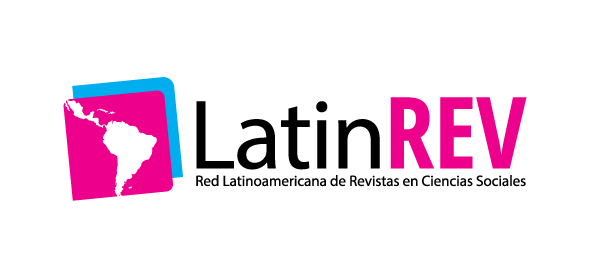Impacto Económico y Social que genera el Sistema de Trabajo en Cooperativa
DOI:
https://doi.org/10.70833/rseisa9item131Keywords:
Cooperative, inclusive business, leaders, labor system, level of equalityAbstract
The present study analyzes the economic and social impact that the cooperative work system. It was conducted through field work with partners and the leaders and experts of the cooperative sector. In the economic sphere; production cooperatives generate more impacts because it offers high savings, investment, job creation, income rather favorable levels of poverty among its partners are evident. All this is due to production strategies or programs they implement. While credit unions are best positioned in the social, reflected in the level of education, level of equality, cultural level; necessary for human development of its members and the community where they are seated. Considering the results found is concluded that this cooperative work system offers a large positive economic and social impact are evident in the level of employment, income, savings: equal participation, democracy, high coverage of preventive health, education: for those who participate in it; and it becomes and inclusive business model becoming effective for the generation of economic and social development of a community or region instrument, so its implementation is recommended in other economic sector.
Downloads
References
CONPACOOP. (2012). Situación del Cooperativismo Paraguayo- Censo Nacional Cooperativo 2012. Asunción: CONFEDERACIÓN PARAGUAYA DE COOPERATIVAS LIMITADA-CONPACOOP.
DGEEC. (2013). Encuesta Permanente de Hogares. Asunción:dgeec.
ACI. (2001-2014). http://www.aciamericas.coop/Principios-y-Valores-Cooperativos.
ACI (2001-2014). http://www.aciamericas.coop/Quienes-somos. .
ACI (s.f.) www.aciamericas.coop. Obtenido de aciamericas.coop: http: www.aciamericas.coop.
Alarcon Gonzalez L A. (2010). Las empresas Cooperativas: Un enfoque Estructural, Normativo y Tecnico. Asunción: Editora Litocolor SRL
BCP. (2014). https:// www.bcp.gov.py/inicio. . Obtenido de Indicadores Económicos
Brandao, G. (2012). Acerca del concepto de sistema: Desde la observacion de la totalidad hasta la totalidad de la observacion MAD, 26 44-53.
Burbano, A C (2011). Apuntes sobre desarrollo comunitario (Primera edicion digital ed.). España Eumed.net, Universidad de Málaga.
CEPAL (2000). Equidad, desarrollo y Ciudadania. México CEPAL
Cooperativa del Sur de Ahorro y Crédito Ltda (2012) Memoria Cooperativa: Educación. Encarnación: Grafica San Luis
Cooperativa San Cristobal Ltda. (2006). Pensamientos Cooperativos- compilacion de articulos publicados en la revista Mensajes. Asunción, Paraguay: Area de Comunicacion del Comite de Educacion.
Cuadrado Roura Juan R., M. T. (2005). Politica Económica. Objetivos e Instrumentos. Madrid: McGRAW HILL/INTERAMERICANA DE ESPAÑA, S.A.U.
Cuadrado Roura Juan R. M. T. (2006). POLITICA ECONOMICA Elaboracion, Objetivos e instrumentos. (Tercera ed.). Madrid: MCGRAW-HILL/INTERAMERICANA DE ESPAÑA, S.A.U
DGEEC. (2014) http:// www.dgeec.gov.py/Publication/index.php. Obtenido de Encuesta Permanente de Hogares Condiciones de Vida 2009-2013
INCOOP. (2011). http:// www.incoop.gov.py/v1/?page_id=63.
JICA INCOOPFECOPROP. (2014). Marco Legal Cooperativo. Proyecto de Asistencia para la Formacion de Cluster de Cooperativas(2012-2016). Asunción, Paraguay: Publicaciones JICA.
JICA INCOOP FECOPROD. (13 de diciembre de 2012). Proyecto de Asistencia para la Formación de Cluster de Cooperativas.
Lavallle, s. (2013). Cooperativas: aspectos legales, impositivos, laborales y contables (tercera ed.), Buenos Aires-Argentina: Aplicacion tributaria S.A.
Marañon-Rodriguez E. B-V-Y (2013). El sistema de trabajo como expresión dinamica del proceso administrativo. Innovación Tecnologica, 19(4),1-12
Mochon Morcillo, F. (2006). Principios de economia (Tercera ed.). (A. Navaro, Ed.) España: MCGRAW HILL/INTERAMERICANA DE ESPAÑA, SAU
OMS. (2013). http://www.who.int/topics/heaIth_systems/es/.
ONU.(2008). www.un.org/es/millenniumgoals/pdf/m-dg-report-2013-spanish.pdf-667k.
PNUD. (2000). INFORME SOBRE EL DESARROLLO HUMANO España: Communications Development Incorporated,.
R. Barbosa Delgado, F. (2011). LA DEMOCRACIA: UNCONCEPTO BASE DENTRO DE LOS SISTEMAS DE PROTECCIÓN DE LOS DERECHOS HUMANOS. Revista Derecho Del Estado, (27), 117-191.
Rodríguez, D. A. (2007). LUGARES Y CONSUMIDORES: ASPECTOS TEORICOS SOBRE UNA GEOFRAFIA ECONOMICA. Revista Reflexiones, 86(1), 101-114.
Sen, A. (2000). Desarrrollo y libertad. BArcelona:Planeta.
Silva Diaz, J. A. (2010). La educación cooperativa como estrategia para el desarrollo de la participación y autogestión. Estudios agrarios
Strange, T. y. (2012). Desarrollo sostenibles: Integrar la economia, la sociedad y el medio ambiente.
Zúñiga A, J. (2005). LA EVOLUCIÓN DEMOGRAFICA Y LA OFERTA LABORAL VENEZOLANA 1950-2001: UN RETO ANTE LA EXCLUSION POR DESEMPLEO Temas De Conyuntura, 5267-112
Downloads
Published
How to Cite
License

This work is licensed under a Creative Commons Attribution 4.0 International License.
Creative Commons Attribution License CC-BY
You are free to:
Share — copy and redistribute the material in any medium or format.
Adapt — remix, transform, and build upon the material for any purpose, including commercially.
Under the following terms:
Attribution — You must give appropriate credit, provide a link to the license, and indicate if any changes have been made. You may do so in any reasonable way, but not in any way that suggests that you or your use is endorsed by the Licensor.







